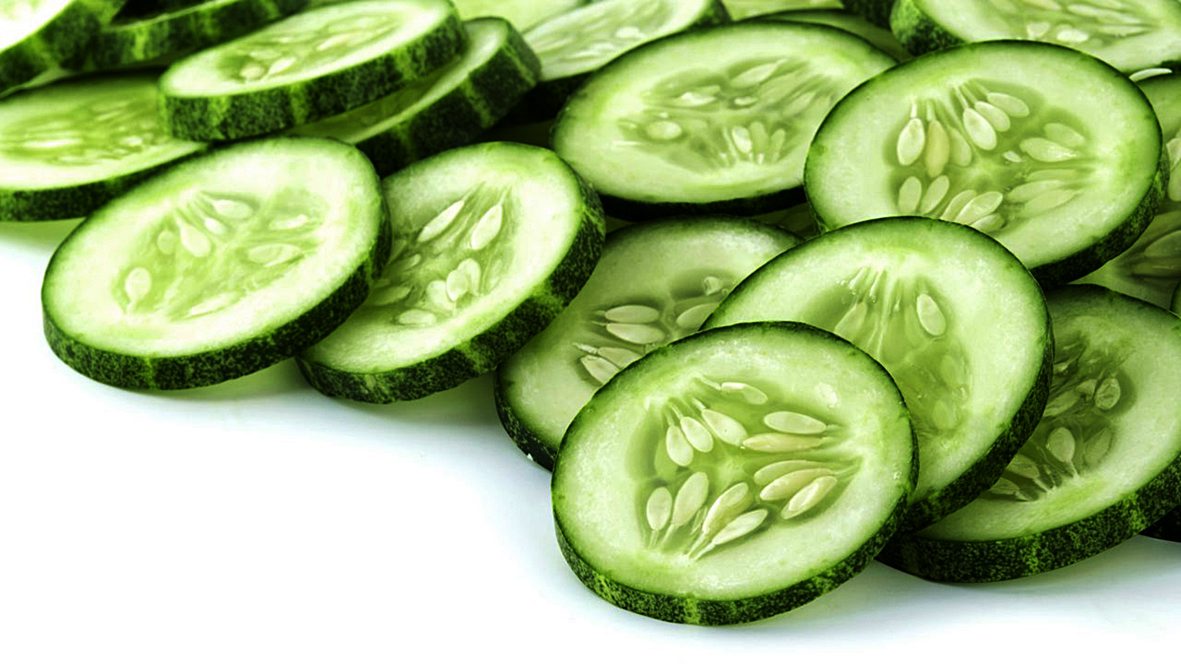Cool as a Cucumber
TEXARKANA, Ark. –
Have you ever heard the expression, someone is as cool as a cucumber? It usually refers to someone who is extremely calm, relaxed and in control of their emotions. This phrase may have originated from the fact that even in hot weather, the inside of cucumbers are approximately 20 degrees cooler than the outside air.
Therefore, a person who stays cool, calm and relaxed in a difficult situation can be compared to a cucumber staying cool inside, even in hot weather! Cucumbers are a member of the gourd family and have been cultivated by man for at least 3,000 years. It is believed to be native to the great Indian center of plant origins which lies between the northern part of the Bay of Bengal and the towering Himalayas. It has never been found wild anywhere, but species closely related to it have been found wild in that region of India.
Most of the distinct types of cucumber grown today were known at least 400 years ago. Present forms range from thick, stubby little fruits, three to four inches long, up to the great English greenhouse varieties that often reach a length of nearly two feet.
Cucumbers provide potassium, vitamin K, magnesium and fiber. Potassium helps maintain healthy blood pressure, vitamin K and magnesium help build and maintain strong bones, and fiber helps control cholesterol and keep your digestive system regular. Most of the nutrients in a cucumber are found in the skin, so keeping the skins on will boost nutrient value.
The so-called "gherkins" that we buy pickled in bottles or glass jars are pickled small cucumbers. The true gherkin, or West Indian gherkin, is a different species that is rarely grown in the United States. It produces a warty (or "prickly") oval fruit about an inch long.
When choosing cucumbers, choose those that are firm, green and slender. Avoid those with soft spots or wrinkled skin. Store unwashed cucumbers in a moisture-proof bag in the refrigerator for up to 1 week.
When ready to use, wipe off any visible dirt. Then rinse the cucumbers well under cool running water and scrub the outer layer before eating or using in recipes. They should be eaten with the skin on for maximum nutritional value; however, if you must peel, use a vegetable peeler. You may wish to remove the seeds of older cucumbers since they can become bitter and tough by slicing lengthwise and scooping the seeds out with a spoon.
Cucumbers are best eaten raw or barely cooked. They can be eaten plain as a snack or an appetizer, and sliced or chopped to add to salads. They also are great dipped in low-fat dressing or other low fat dips. Try adding sliced cucumbers to sandwiches as well.
One half cup fresh cucumber with the peel contains only 10 calories due to their high water content. It has zero fat, sodium or protein, and contains only 2 grams of carbohydrates.
Cucumbers can be found in supermarkets year round and at farmers markets and gardens from now through October.
For more information, contact the Miller County Extension Office, 870-779-3609 or visit us in room 215 at the Miller County Courthouse. We're online at chadley@uada.edu, on Facebook at UAEXMillerCountyFCS/CarlaHaleyHadley, on Twitter @MillerCountyFCS or on the web at uaex.uada.edu/Miller.
By Carla Haley-Hadley
County Extension Agent - FCS
The Cooperative Extension Service
U of A System Division of Agriculture
Media Contact: Carla Haley-Hadley
County Extension Agent - FCS
U of A Division of Agriculture
Cooperative Extension Service
400 Laurel Street, Suite 215 Texarkana AR 71854
(870) 779-3609
chadley@uada.edu
The Arkansas Cooperative Extension Service is an equal opportunity institution. If
you require a reasonable accommodation to participate or need materials in another
format, please contact your County Extension office (or other appropriate office)
as soon as possible. Dial 711 for Arkansas Relay.
Pursuant to 7 CFR § 15.3, the University of Arkansas System Division of Agriculture
offers all its Extension and Research programs and services (including employment)
without regard to race, color, sex, national origin, religion, age, disability, marital
or veteran status, genetic information, sexual preference, pregnancy or any other
legally protected status, and is an equal opportunity institution.
